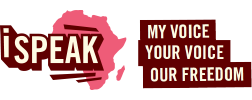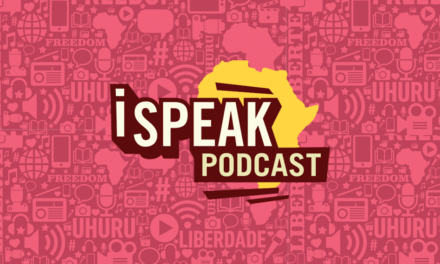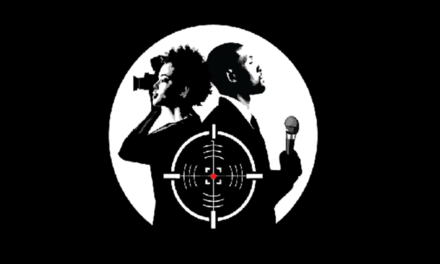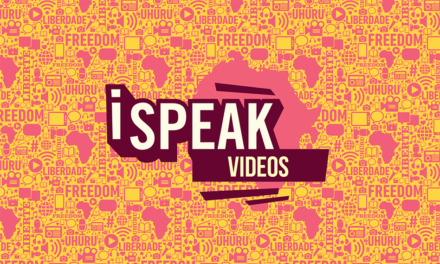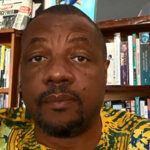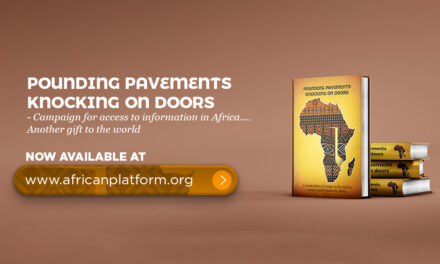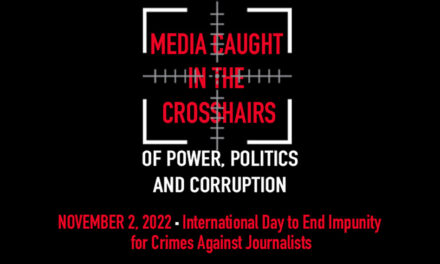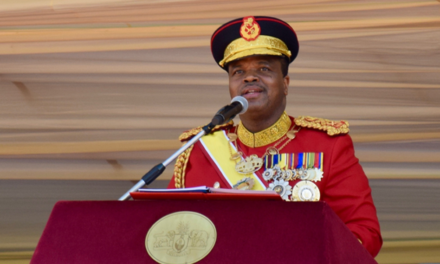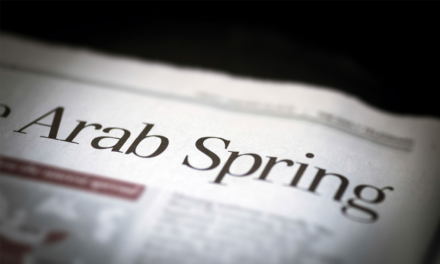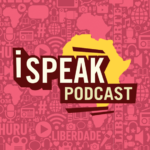
Snapshots that shaped the FoE landscape in 2021
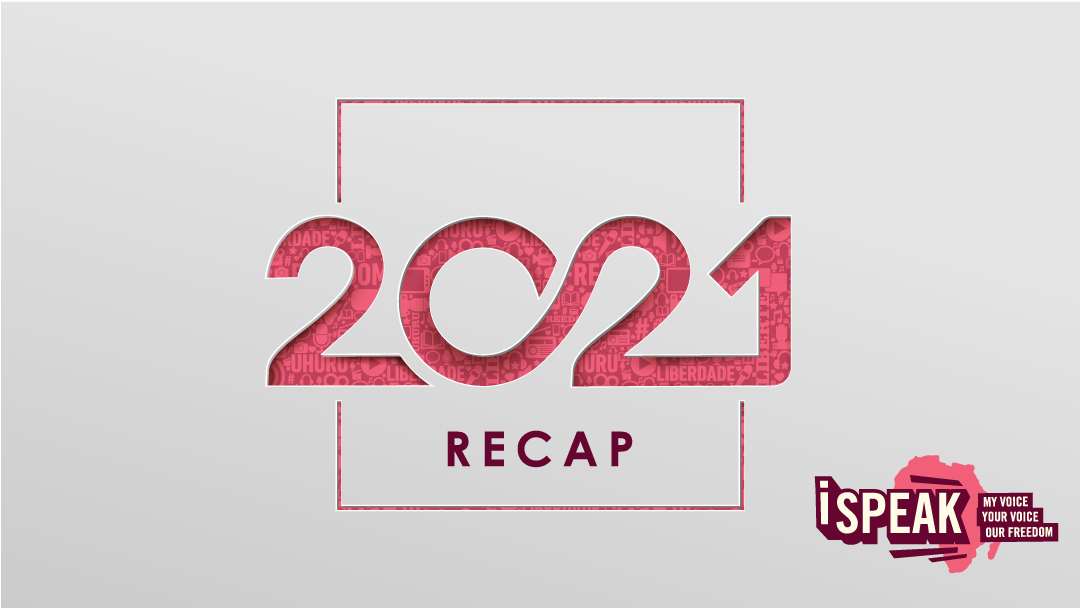
In looking back at events during the year, Reyhana Masters focuses on a few notable snapshot moments that have been understated, yet have significantly shaped the freedom of expression and access to information landscape in both valuable and damaging ways. This is so we can contemplate, how we, as citizens and civil society organisations can contribute to a more just and inclusive environment.
As the curtains slowly came down on 2021, there is no doubt that there was and is so much to consider. We have gone through many crises over the year, as we continue to live with the effects of a global pandemic that has that inflicted fear, uncertainty, insecurity and reinforced inequity among citizens the world over. This is against a backdrop of internal conflicts, rising and brutal suppression of dissenting voices, authoritarianism, military insurgencies, flailing economies, elections marred by internet shutdowns, restrictive legislation and rampant corruption. All of these factors have a direct as well as indirect link on media freedom, media sustainability, media development, diversity and undoubtedly on access to information and freedom of expression.
While it is necessary to focus on what beleaguers Africa, let’s take a moment to focus on the brighter moments, of which there were quite a few.
What comes to mind instantly, is how World Press Freedom Day celebrations took a 360 degree spin, as explained by UNESCO, “to land right back in it’s birth place thirty years after the landmark meeting that brought forth the 1991 Windhoek Declaration on Free, Independent, and Pluralistic Press that ultimately initiated the 3 May proclamation.”
While the impact of COVID-19 restrictions impacted on this year’s WPFD celebrations in terms of volume, it was nonetheless momentous when participants adopted the Windhoek + 30 Declaration – an updated version of Windhoek Declaration that takes into consideration the changes that have taken place over the past thirty years. This significant moment was further reinforced when member States at the 41st session of the UNESCO General Conference, unanimously voted in favour of Namibia’s resolution to adopt the principles contained in the Windhoek +30 Declaration.
This endorsement has the potential to provide impetus to the issues contained in the Declaration and when combined with the content of the revised ACHPR Principles on Freedom of Expression and Access to Information, there is potential for the creation of a strong lobbying strategy and practical and effective advocacy interventions, to counter the deepening threats the continent and its’ media are facing.
ATI win in The Gambia
Advocates were able to dust off the champagne glasses and raise them high, with The Gambia’s passage of the Access to Information Bill 2021 by the National Assembly on 1 July. This historic milestone, 5 years after emerging from a brutal dictatorship, is in large part due to the persistence of the Gambia Press Union and the ability of the various stakeholders – the civil society coalition and relevant ministries including the Ministry of Information and Communication and the Ministry of Justice being able to work collectively.
Several months later, The Gambia was able to take another leap forward in its healing process as the country’s Truth, Reconciliation and Reparations Commission submitted its final report to President Adama Barrow based on hearings that started in January 2019.
Awards form the backstory to repression
While the nominations and granting of awards to courageous freedom of expression advocates – Matías Guente, Samira Sabou, and Tsitsi Dangarembga offered interludes for celebration – these tend to be tinged with feelings of disquiet as they are bittersweet moments. At the same time that these awards recognise resilience and agency, they also expose the situation in which that resistance and courage is cultivated.
In his acceptance speech for the International Press Freedom Award by the Committee to Protect Journalists, Mozambican journalist Guente, by the Committee to Protect Journalists, put the spotlight squarely on the unsolved disappearance of Ibraimo Mbaruco adverse conditions in which the country’s media have to operate within, the commercial interests being protected in the resource rich and restive region of Cabo Delgado and mostly notably his attempted kidnapping, the constant harassment he faces and the costly arson attack on his newspaper Canal de Moçambique.
On receiving the German Peace Prize, her third award this year, world acclaimed Zimbabwean novelist and filmmaker Dangarembga was praised for “the unique narrative with a universal view in her artistic work” and told: “you are not ordinary; an ordinary life was not an option for you. You are one of the most successful and important voices on the African continent . . .”
In her acceptance speech Dangarembga analyzed: “how physical, psychological, political, economic, metaphysical, and genocidal violence perpetrated within imperial structures has successively led to what she called a “no-win situation” in societies’ current system.”
“What we can look to is to change our thought patterns word by word, consciously and consistently over time, and to persevere until results are seen in the way we do things and in the outcomes of our actions. Our choices of thought content and process are ultimately a choice between violence-producing and peace-producing contents and narratives,” she added.
The presentation of 2021 Index on Censorship Freedom of Expression Award in the journalism category to fearless campaigner, activist and blogger Samira Sabou highlights the risk investigative journalists are facing for exposing corruption. Despite being arrested and charged with defamation under the 2019 cybercrime law in connection with a Facebook post highlighting corruption, Sabou is fearless and continues pushing the boundaries to get at the truth.
Whistleblowers pay hefty price for speaking up
It’s been a testing year for whistleblowers who have been purposely targeted for exposing malfeasance. Instead of being seen as heroes, they end up being persecuted.
This is certainly the case with Congolese bank staffers Gradi Koko and his colleague Navy Malela who were both imposed with death sentences in their home country in absentia for exposing an alleged money laundering network within the DRC. In addition to this unjust punitive measure, they have also become the targets of a smear campaign and have also received death threats.
But possibly the most tragic death was the targeted assassination of South African whistleblower Babita Deokaran. She was shot and killed outside her home in Winchester Hills on 23 August 2021. Deokaran was a senior financial officer at the Gauteng Department of Health and an important witness in an investigation of corruption within the department; former colleagues believe she was helping authorities link senior political figures to irregular procurement deals.
Journalist Mandy Wiener’s opinion piece, two weeks after Deokaran’s death pointed for the need “to change the way we in society respond to whistleblowers — not by treating them as outcasts, pariahs, impimpis, traitors or troublemakers, but as courageous, ethical, heroic citizens with integrity. We should all want to emulate them.”
Journalists death toll continually rising
Possibly the most taxing issue for the media is the thriving culture of impunity in direct correlation to the rising number of murders of journalists on the continent.
Just before the world marked International Day to End Impunity, the continent had already witnessed the death of 10 African journalists and 3 foreign journalists as well as the abduction of a French journalist in the Sahel. Less than two weeks after November 2 commemorations, the death toll rose to 15 with the targeted suicide bombing that killed well-known journalist Abdiaziz Mohamud Guled and injured Sharmarke Mohamed Warsame, the director of the government-owned Somali National TV, and their driver Abdukadir Abdullahi Nur. Meanwhile in Kenya, a murder investigation has been launched into the death of Kate Mitchell, a senior manager at BBC Media Action. Although many of the deaths may not be linked to their work, it remains an issue of concern.
As already pointed out in a previous iSPEAK.Africa article: Giving impetus to the boldness of these attacks, is the lack of political will in providing credible and coherent responses to these violations. The thriving culture of impunity is not only an indicator of how the media is being purposefully debilitated, but it also points to weak policing and justice systems.”
Weaponisation of legislation and the rise in surveillance
While imposing arbitrary internet shutdowns has always been of major concern to digital rights activists, the most devious and disturbing threat is the number of African countries that have deployed surveillance devices in recent years. Research conducted by the Institute of Development Studies (IDS) and the African Digital Rights Network (ADRN), looked into how the governments of Egypt, Kenya, Nigeria, Senegal, South Africa and Sudan are using and investing in new digital technologies to carry out illegal surveillance on citizens.
African governments’ are focusing their attention on increasing surveillance of any member of the public posing a threat to their entrenchment of power, namely – critics, activists, opposition party members and the media.
As The Conversation points out: “in the first comparative review of privacy protections across Africa, the evidence is clear: governments are purposefully using laws that lack clarity. Or they ignore laws completely in order to carry out illegal digital surveillance of their citizens. What’s more, they are doing so with impunity.”
The report found that existing surveillance laws are being eroded by six factors:
- the introduction of new laws that expand state surveillance powers;
- lack of legal precision and privacy safeguards in existing surveillance legislation;
- increased supply of new surveillance technologies that enable illegitimate surveillance;
- state agencies regularly conducting surveillance outside of what is permitted in law;
- impunity for those committing illegitimate acts of surveillance and
- insufficient capacity in civil society to hold the state fully accountable in law.
The three categories of surveillance technology being used by the six African governments are social media surveillance, signal intercept surveillance and mobile phone spyware. Remote-control hacking is another form of surveillance technology that is spreading across the continent. These surveillance systems enable governments to access files on targeted laptops. They also log keystrokes and passwords as a means to turn on webcams and microphones.
While these countries may be weak on data protection legislation, they tend to be heavy handed with cybersecurity or cybercrime laws that are then used to suppress free speech. An analysis by the Media Foundation for West Africa takes a close look at laws and frameworks passed in seven West African countries that constrict freedom of expression of online publications, and muzzle dissenting voices.
All these developments and events – good and bad – highlighted in this snapshot require our attention. How do we counter threats being posed. What can we do to build on the advocacy that is needed to curtail the erosion of our rights. How do we celebrate our heroes and heroines in a way that raises their profile while amplifying the conditions in which they operate? How can we raise attention and work on strategies to curb excesses by State authorities infringing on our rights.
